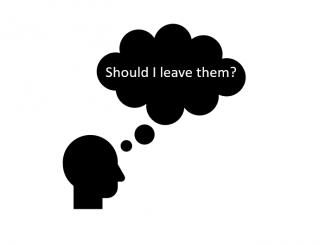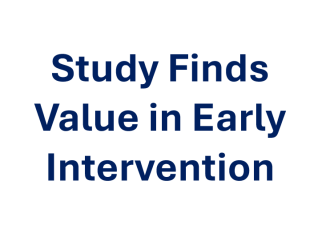I’m not blowing my own trumpet, however, after all these years, I’ve now worked with hundreds of couples.
One of the common traits I have seen in couples that present for relationship counselling is the dynamic of Anxious/Avoidant.
How common? It’s almost always there in couples that are dysfunctional or troubled, in those who reach out for help.
It is an interesting dynamic to watch play out, especially when people become aware of what’s happening between them and their significant other.
Unfortunately, it can be a damaging cycle when not identified and when corrections aren’t put into place.
So, what is the Anxious/Avoidant relationship dynamic?
Well, before we dive into that, I just wanted to mention that being different from your partner is often not a problem. As I cover here, it is not uncommon that rifts between people are because of similarities, not differences.
What you see, though, quite often, is that couples start from their personal alternative points/behaviours/traits (such as Anxious or Avoidant), and when that doesn’t work, they often end up in a log-jam.
In other words, they become similar, for example, both angry, frustrated, stubborn, overwhelmed, etc., and unable to find a way out.
They often even flip roles, the anxious person becomes avoidant, and vice versa!
So, Anxious/Avoidant is often something that happens more on the surface, or a day-to-day basis, a starting point where things can start to unravel.
To best explain Anxious/Avoidant, let’s look at the traits of two fictional characters – Bronwyn and Mike.
Bronwyn has always been a sensitive person, a little bit shy, and would describe herself as being reserved.
Her parents had what she thought was a mostly good relationship; however, when she was around fifteen, she recalls her parents arguing a lot and her dad moving out for a short period of time.
Eventually, mum and dad reconciled and they are still together today, albeit “they drive each other crazy,” Bronwyn says with a smile.
Bronwyn had two previous boyfriends before meeting Mike, one relationship ended because “we were immature, a schoolyard type thing,” and then the other partner cheated.
Bronwyn says she was attracted to Mike because he seemed steady and reliable, and the early days of the relationship “were fun”.
Mike had quite a different upbringing.
Describing himself as not overly sensitive, Mike recalls that he cannot remember his parents being together at all; they separated when he was two. He says it was for the best, and he spent a good amount of time with each parent growing up.
Mike says that he is like his dad in that he prefers to solve problems using logic, and this has served him well in both his personal and professional life.
He says that he can be “a bit of a chameleon”, meaning he can shift his personality and preferences depending upon the environment/situation he’s in.
Previous relationship experience includes one long-term relationship with a woman, whom he says “wanted more than I could give,” and some casual dating before meeting Bronwyn.
Bronwyn and Mike present to therapy saying that they tend to get on well, or at least OK for periods, but then “things start to come off the tracks”.
Upon further investigation, it might be found that both are conflict avoidant, but in their unique way.
Here’s an example: Bronwyn, who has learnt that relationships are fragile, can end, take work and aren’t always perfect, often chooses to bite her tongue (which is avoidance in itself).
Yes, there are things she would like to change; however, she is anxious about hurting Mike or causing a fuss.
Potentially, Bronwyn might be aware that previous situations where she has suggested or requested change were met with an invalidating response from Mike.
Something like, “Mike, it would make me happy if you made more of an attempt to get to know my family.”
Mike’s response may have been something like, “But, you know that I come to every family event.” (a logical and factual answer, but not one that helps Bronwyn feel heard or understood).
The response is also avoidant in the sense that Mike hasn’t been aware, or won’t allow himself to be drawn into the feelings expressed by his partner in her statement (Mike might believe that emotions and feelings only cause problems).
Brownyn then feels sad about the response (yes, another pesky emotion) and may be less confident in being able to bring feelings, thoughts, suggestions and opinions to Mike in the future.
After all, he’s a good guy, and she doesn’t want to push him too far for fear of another invalidating response, or worse, a fight.
Bronwyn thinks, if you invalidated me about my feelings regarding my family, how will you respond if I relay a negative emotional reaction that you have caused?
The stakes have grown.
So, the next time Bronwyn wants to share the way she feels about something, maybe it’s sadness, frustration, or even a happy emotion, she might be more anxious about the response…and thus slip into avoidance.
Bronwyn can maintain this for a while, but the chances are her emotions are building under the surface, and one day she can’t help but let it all out.
This, then, overwhelms Mike. He feels like he’s been blindsided, that everything was going along so well, and might even judge Bronwyn for being so instantly erratic and unreasonable.
Of course, this only makes Bronwyn more anxious about expressing her feelings, and makes Mike more likely to try and keep things logical and “between the lines”.
And the cycle starts again, but with some damage done, no greater understanding of self or other achieved, and the potential for resentment to be present from the get-go.
Interestingly, it is often these couples that come to relationship therapy late in the piece. Why? Because one person is anxious that things will get out of control in this new environment, and the other person believes they can solve it themselves!
The good news is, if this sounds like you and your partner, change can be made, and the cycle can be broken.
It takes time, commitment and effort, but if you want more and you want better, take that step.



